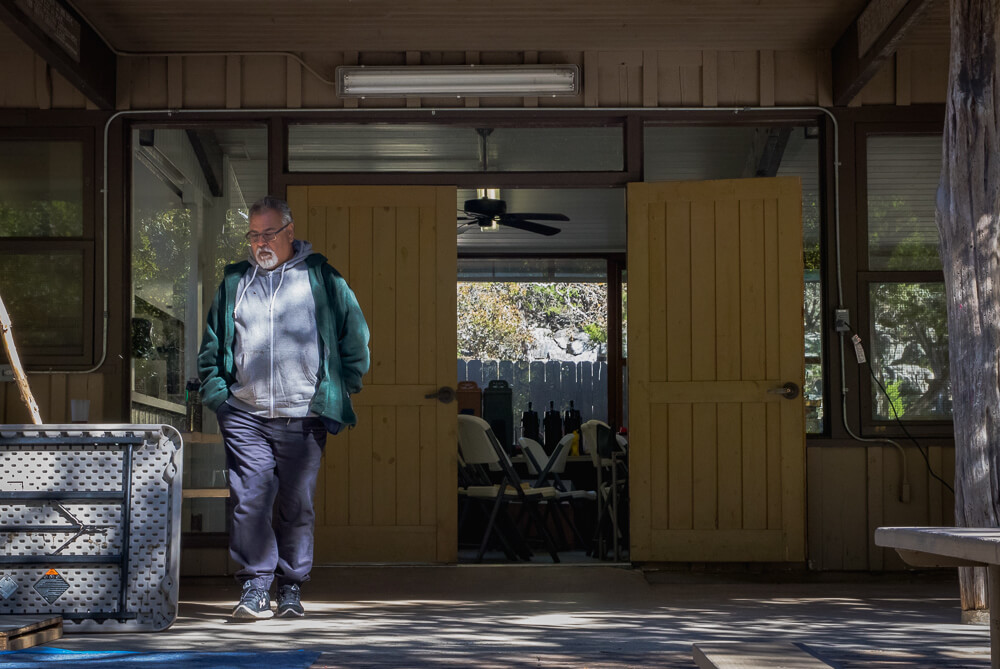
““This is Brother Steven. He’s here to tell a story.””
The noise of unoiled door hinges told everyone in the Linnet’s Wings Ranch House that I was late.
I looked around apologetically, but no one seemed to mind, judging by an older man in the back row acknowledging me with a nod and soft smile. The 45 men in the room, from preteens to retirees, most heads topped with beanies or ball caps, were engrossed in the man leading the devotional at the front of the room. The background of the people in the room was mixed, geographically, ethnically, and financially.
These were the Iron Men of God, an assortment of men’s church groups hailing from Dallas to Dilley to Corpus Christi.
Joe Quintanilla, the retreat coordinator, stood up to thank the man who gave the devo and talk to the group about the day ahead. Joe told everyone they would carve walking sticks for the next activity, and he called everyone’s attention to an older man sitting near the windows, who held up his smooth and weathered stick. Exclamations—“Wow!” “Look at that!” “Ooh, that’s nice…”—bounced around the room.
Joe began to make his way outside to make room for John Kerr to give a quick orientation. I followed him to introduce myself, but Joe stopped, smiled, and shook my hand. He called the room to attention before John Kerr took over.
“This is Brother Steven,” Joe said. “He’s here to tell a story.”
Then Joe invited me to stay the whole weekend with them, and while still in front of the room, pointed me to a man named John Wranosky, saying John had a long history with the Canyon. After the orientation, I sat down with John Wranosky.
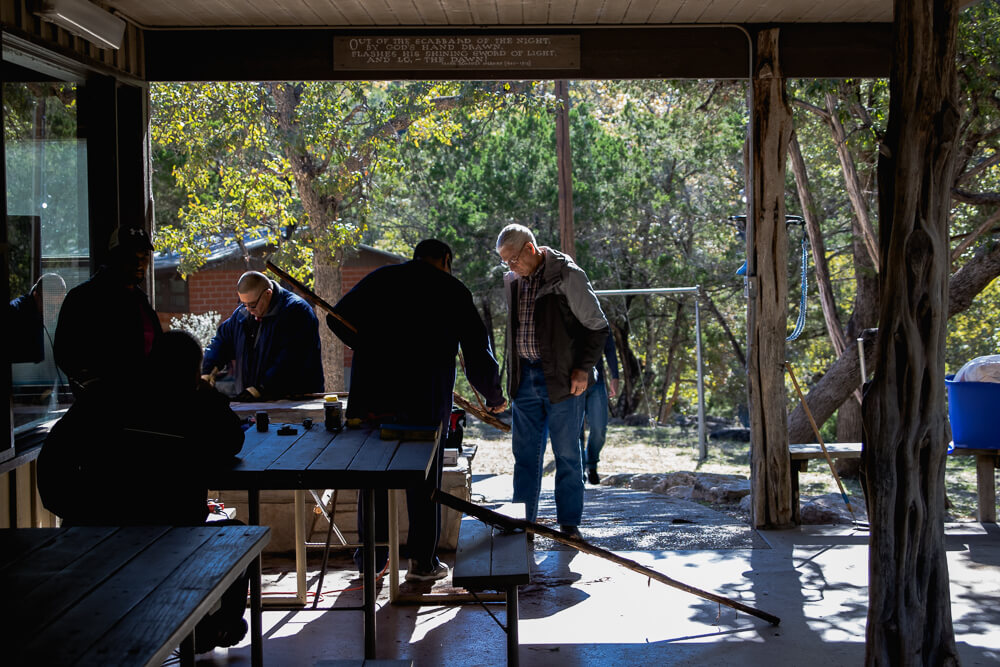
““I have a phone that gets signal in the jungles of Ecuador, but not here."”
“There are boys here that have seen this kind of environment before,” he said, “but the experience—getting away from commercialized society in this way—is new.”
“I have a phone that gets signal in the jungles of Ecuador, but not here. Your mind goes somewhere when you’re checking scores, or looking for where the next party is—you can’t see if you need to run home to fix something.”
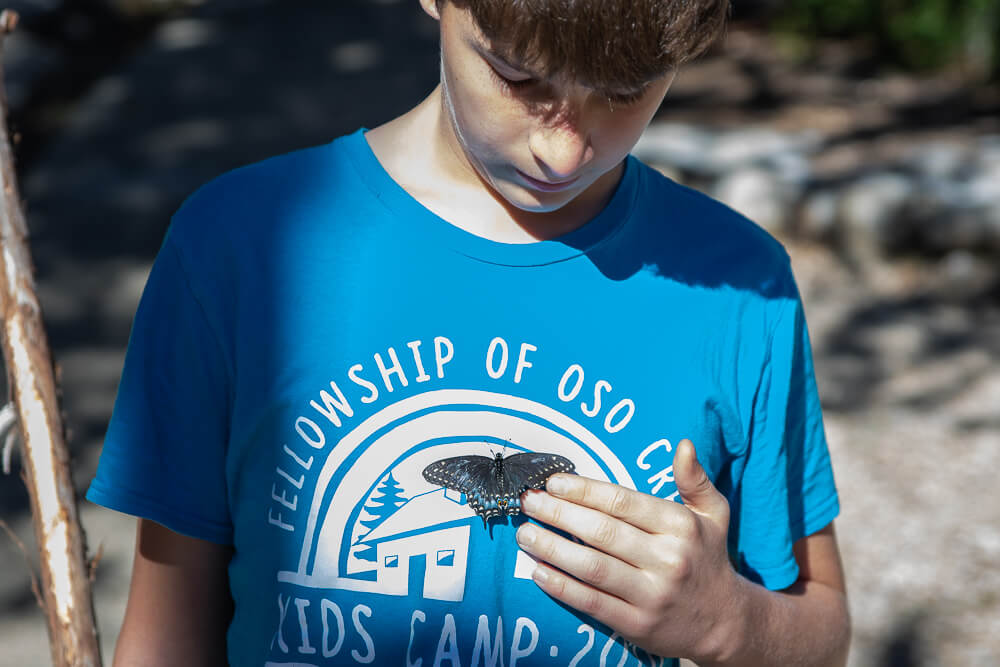
“But here, it’s a chance to disconnect and learn something about people you never knew.”
John told me camp stories of repaired relationships, of people’s epiphanies, of a man for whom it finally “clicked,” leading to a Blue Hole baptism. Then he turned the questions around to get to know me: how I came to work with the Foundation, where I’m from, what kind of camera I carry and how it is similar to his. One of his favorite hobbies, he told me, is photography.
After we compared cameras for a bit, I suggested we go explore the retreat, to which he said, “I’m having a great time just sitting and talking.”
We eventually parted ways and I went to talk with some other guests. I found Joe again, and again he invited me to stay for the retreat.
“We can figure out where to make room for you,” he said. I hadn’t planned on that long of a stay, so I politely declined. But he insisted on at least hosting me for lunch and giving me a retreat t-shirt.
““Here, we’re all the same—no racial barriers, but lots of diversity.””
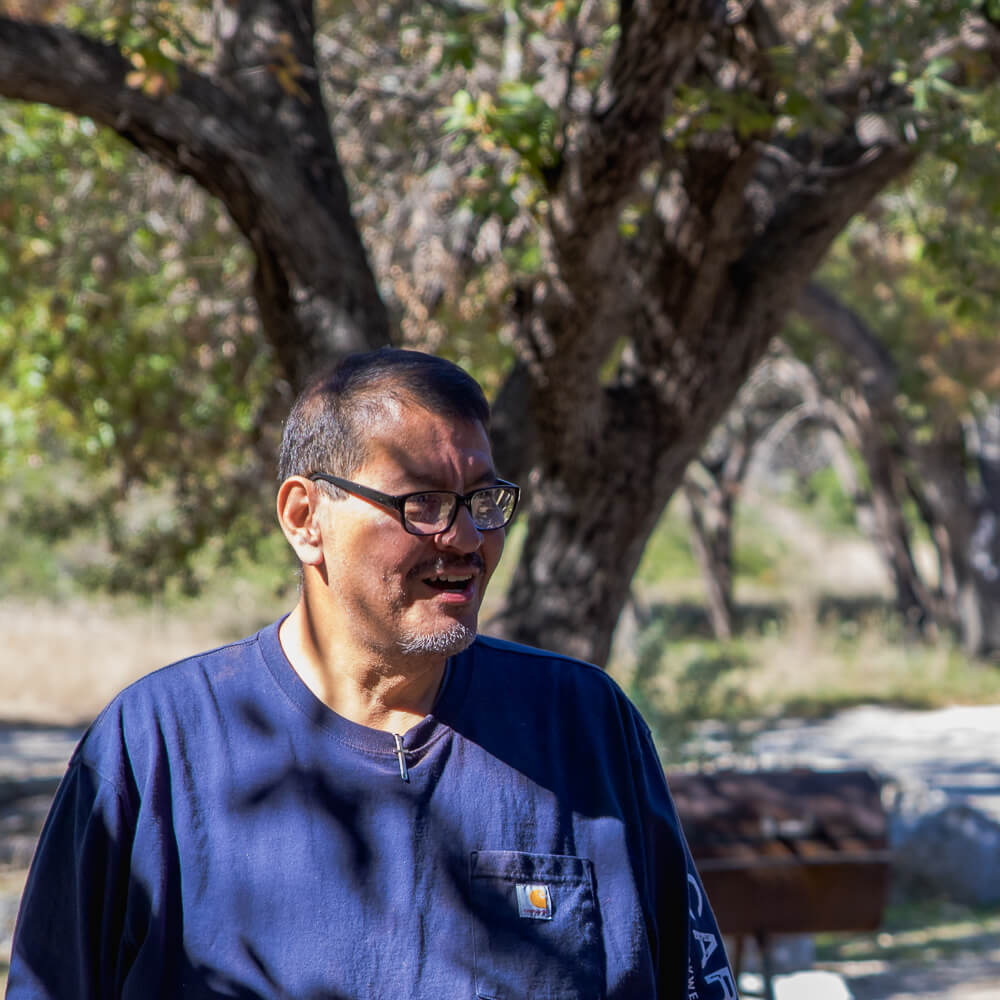
Technically, as part of the Foundation, I was part of the group hosting themin the Canyon. But they turned the the situation around. I was their guest.
Right before lunch, Joe sat and told me his own stories, about the man who took him on his first plane ride and whose mother was his old Sunday school teacher, one of the first people of many to show him “the face of Christ.” He told me about the men of the retreat: “Here, we’re all the same—no racial barriers, but lots of diversity.”
The walking sticks, he said, were a tradition and a symbol. The weathered-stick-wielding man from earlier that morning had held onto his handiwork from the year prior. They were to remind people of the staff of Moses, but the sticks were also a symbol that no one walks alone.
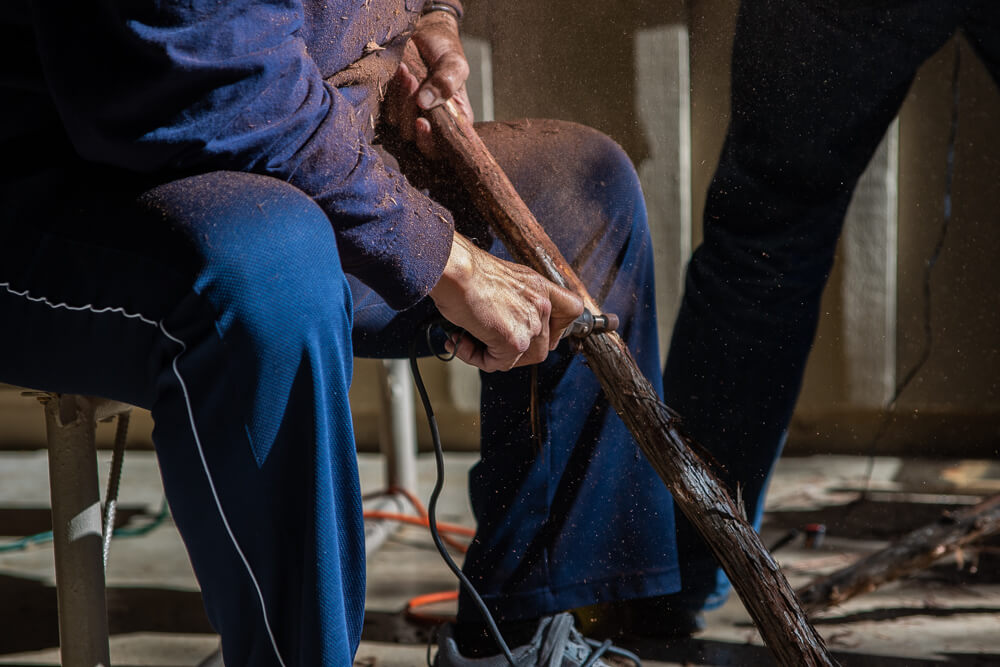
But I wasn’t the only one asking questions. Throughout the conversation, Joe made a point to ask me about myself: my family, my experiences in the Canyon, what I did in college. Again, they were getting to know me.
He had a lesson for me. “Men struggle with communication,” he said, “but if they can start by communicating eye-to-eye with each other, they can learn to be better fathers, husbands, and sons.”